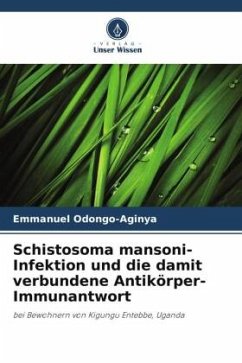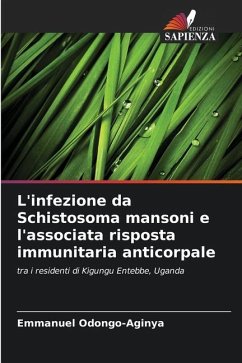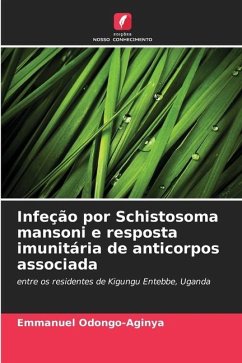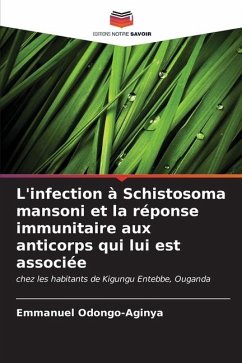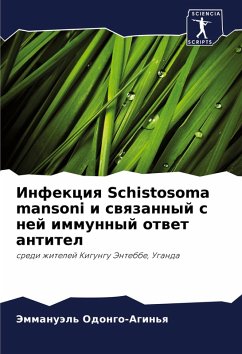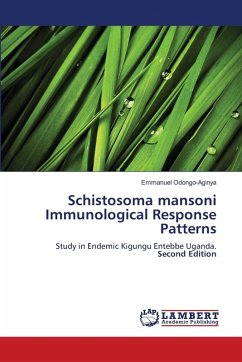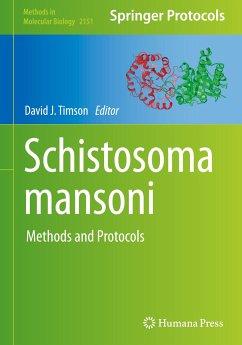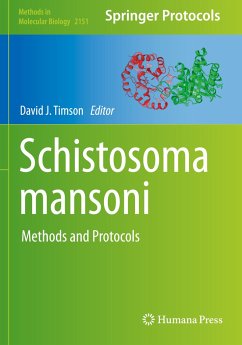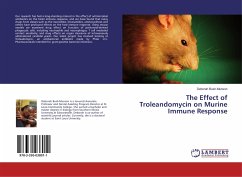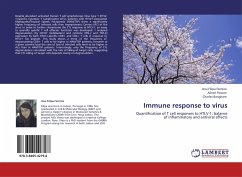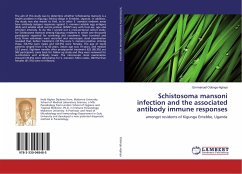
Schistosoma mansoni infection and the associated antibody immune responses
amongst residents of Kigungu Entebbe, Uganda
Versandkostenfrei!
Versandfertig in 6-10 Tagen
21,99 €
inkl. MwSt.

PAYBACK Punkte
11 °P sammeln!
The aim of this study was to determine whether Schistosoma mansoni is a health problem in Kigungu fishing village in Entebbe, Uganda. In addition, the study was also meant to find, as in other S. mansoni endemic areas how antibody isotypes responses against S. mansoni soluble egg antigens (SEA) and soluble adult worms protein (SWAP) vary with host sex, age and infection intensity. To do this I carried out a cross-sectional cohort study for Schistosoma mansoni among Kigungu residents in which one thousand participants reported for screening and enrolment. Nine hundred and forty three volunteers...
The aim of this study was to determine whether Schistosoma mansoni is a health problem in Kigungu fishing village in Entebbe, Uganda. In addition, the study was also meant to find, as in other S. mansoni endemic areas how antibody isotypes responses against S. mansoni soluble egg antigens (SEA) and soluble adult worms protein (SWAP) vary with host sex, age and infection intensity. To do this I carried out a cross-sectional cohort study for Schistosoma mansoni among Kigungu residents in which one thousand participants reported for screening and enrolment. Nine hundred and forty three volunteers were recruited and microscopic stool examination revealed that, before treatment, (47.5%) were S. mansoni positive. Among these, (56.5%) were males and (43.5%) were females. The age of study patients ranged from 5 to 60 years, (mean age was 19 years, and median 33.5 years). Eighteen months after praziquantel treatment 625 (66.3%) out 943 participants came back for follow up study and they were reviewed for re-infections and antibody levels. The microscopic stool examination showed (39.4%) were still positive for S. mansoni. More males, (58.5%) than females (41.5%) were re-infected.



